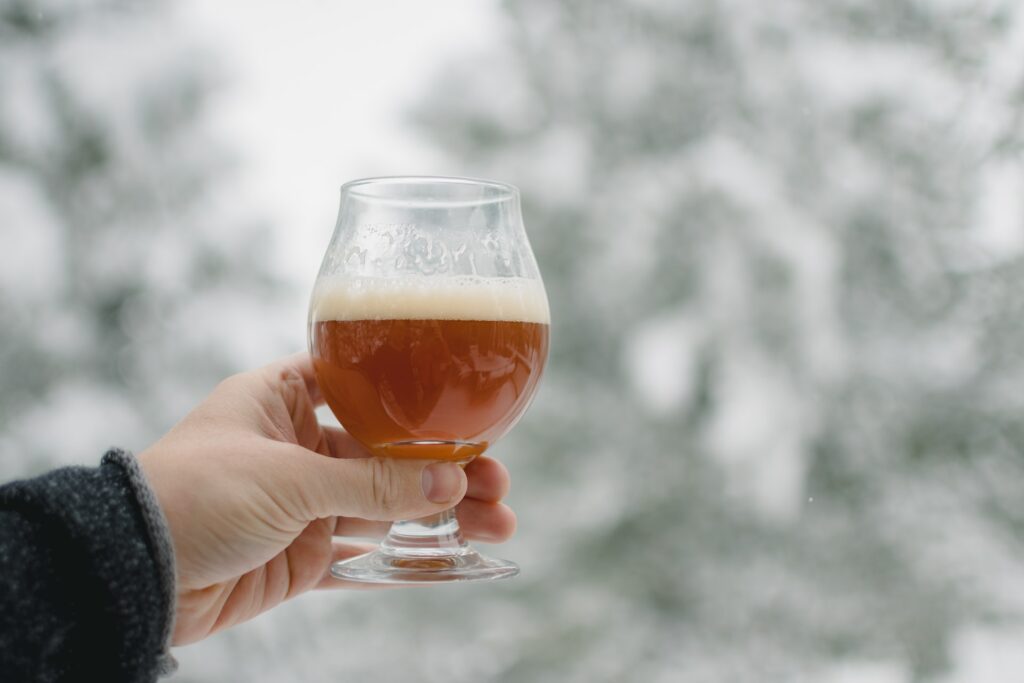If you buy something through a link in our posts, we may get a small share of the sale.
Homebrewing has a long and storied history. It was around long before the rise of commercial breweries and has been practiced by people worldwide. Recently, there has been a resurgence in the popularity of homebrewing, as more people are interested in making beer. So, is homebrew legal?
Contents
Is Homebrew Legal?
Yes, homebrewing is legal in all 50 states of the United States of America. The homebrewing community has worked hard to keep it that way, as homebrewing is a great hobby everyone can enjoy. It is also legal to sell homebrewed beer, as long as it is done so within the confines of the law.

However, there are some restrictions on home brewing. For instance, it is illegal to distill alcohol without a license. This means some conditions on making your hard liquor at home. Additionally, it is important to note that homebrewed beer must be for personal consumption only. To sell, you must first obtain the proper licensing from your state government.
While homebrewing is legal, there are some things to keep in mind. First and foremost, always check your local laws to make sure you comply. Additionally, be sure to brew in a safe and clean environment. Homebrewing is a great hobby everyone can enjoy, as long as it is done responsibly.
History of Homebrewing
Homebrewing is the process of making beer, wine, cider, and other alcoholic beverages at home. Homebrewing has a long history dating back to ancient times. Evidence of homebrewing has been found in early Sumerian writings and Egyptian hieroglyphs.
In the United States, homebrewing was made illegal in 1919 with the passage of the National Prohibition Act. This law made it illegal to produce, transport, and sell alcoholic beverages. Homebrewing was again made legal in 1978. President Jimmy Carter signed a law making it legal to brew beer at home for personal consumption.
Today, homebrewing is a popular hobby among many people. There are several reasons why someone might choose to homebrew. Some people enjoy making their beer, wine, or cider. Others appreciate being able to control the ingredients and process of making their alcohol. Others simply want the taste of homemade beer, wine, or cider.
Laws Regarding Home Brewing
The America Homebrewers Association (AHA) is a nonprofit organization dedicated to promoting the community of homebrewers. The AHA advocates for the rights of homebrewers and works to keep homebrewing legal.
In the United States, homebrewing is regulated by the Federal Alcohol Administration Act (FACA). This law provides guidelines for the production and sale of alcoholic beverages. The FACA does not explicitly make homebrewing legal or illegal. However, it does provide an exception for homebrewing beer for personal consumption.
This means that homebrewing is legal in the United States as long as it is done for personal consumption. It is also permitted to give away this beer as long as it is not done for profit. Additionally, some states have laws regarding home brewing. For instance, Alabama and Mississippi have laws that specifically allow for the homebrewing of beer.

Side Effects of Home Brewing
Homebrewing is good and fine; however, some side effects may arise from this activity. The following are some of the more common side effects of homebrewing:
- Hangovers: As with any alcoholic beverage, there is a risk of getting a hangover from homebrewed beer. Hangovers are caused by dehydration that occurs after drinking alcohol. Symptoms of a hangover include headache, nausea, and fatigue.
- Environmental impact: Homebrewing can hurt the environment. For example, homebrewers often use plastic bottles, which can take hundreds of years to decompose. Additionally, the brewing process uses water and energy, which can negatively impact the environment.
- Safety: Homebrewing can be dangerous if not done in a safe and clean environment. For instance, it can lead to explosions, fires, and other accidents if it is not done carefully.
- Taste: Some people may not like the taste of homebrewed beer. This is because it can taste different than commercial beer. Homebrewed beer can also vary in taste depending on the ingredients used and the brewing process.
Frequently Asked Questions
Is Homebrewing Safe?
Yes, homebrewing is safe if done in a safe and clean environment. However, it can be dangerous if not done carefully. If you plan to homebrew, ensure a safe brewing area and follow all safety instructions.
What Is the Difference Between Homebrewed Beer and Commercial Beer?
The difference between homebrewed beer and commercial beer is that homebrewed is brewed in small batches, typically for personal consumption. Commercial beer is brewed in large batches and is typically mass-produced.
Conclusion
Whether you are planning to start homebrewing or are already a homebrewer, it is important to know the laws and regulations regarding this activity. Homebrewing is legal in most states, and the Federal Alcohol Administration Act regulates it to ensure that it is done safely and for personal consumption.

